Investing in global vaccine justice
German biotech company BioNTech is building Africa’s first commercial vaccine production facility in Rwanda.

Practising international networking: we present individuals who symbolise Germany’s partnerships around the world. Global challenges can only be overcome by working together.
Dieses YouTube-Video kann in einem neuen Tab abgespielt werden
YouTube öffnenThird party content
We use YouTube to embed content that may collect data about your activity. Please review the details and accept the service to see this content.
Open consent formRarely has the opening of a new business site attracted so many high-profile international politicians as the launch of the German company BioNTech in the Rwandan capital Kigali. Besides the German Foreign Minister Annalena Baerbock, EU Commission President Ursula von der Leyen, African Union Commission Chairperson Moussa Faki, Rwandan President Paul Kagame and other African heads of state and government came to Kigali to attend the launch in December 2023. Construction has continued in the meantime, with a vaccine production plant set to be completed here by the end of 2024.
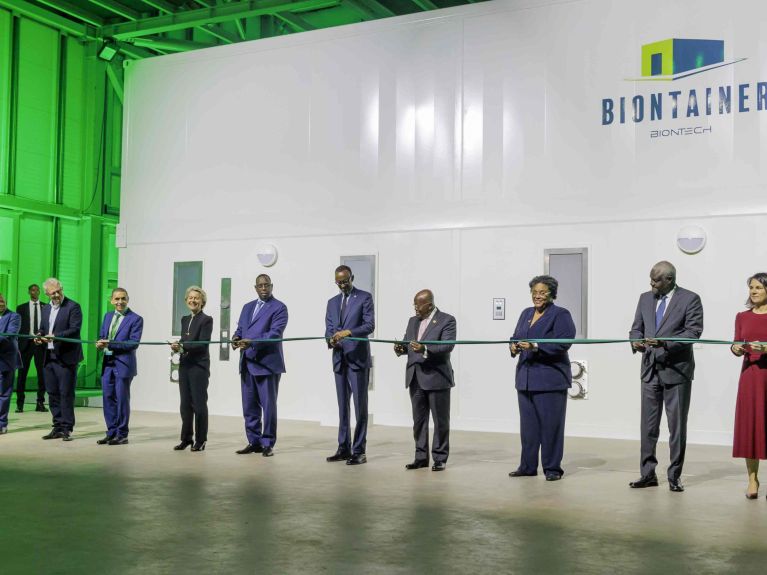
But that’s not all: “We want to establish an entire ecosystem for vaccinations in Africa,” said Uğur Şahin, co-founder of the German biotech firm BioNTech, at the opening. The coronavirus pandemic revealed just how fatal the lack of such an “ecosystem” in Europe’s southerly neighbouring continent can be.
We want to establish an entire ecosystem for vaccinations in Africa.
Since the pandemic, BioNTech has become a household name: this previously fairly small research-focused company from Mainz teamed up with US pharma giant Pfizer to develop a highly effective mRNA vaccine against the coronavirus SARS-CoV-2.
Dieses YouTube-Video kann in einem neuen Tab abgespielt werden
YouTube öffnenThird party content
We use YouTube to embed content that may collect data about your activity. Please review the details and accept the service to see this content.
Open consent formFairer distribution of vaccines
Other firms also placed vaccines on the market, yet the production capacities of the handful of companies fell far short of the huge international demand. There was growing criticism in Africa, Asia and Latin America of the unfair global distribution of the lifesaving vaccines; European politicians were among those who committed themselves to global vaccine justice. BioNTech founders Uğur Şahin and Özlem Türeci rejected widespread calls for patents to be abolished, as did other pharma companies: they argued that it would take so long to pass on the technology necessary for production that this would not be any help in the battle against Covid-19 in any case. Furthermore, they claimed that pharma research was so time-consuming and expensive that abolishing patents would discourage firms from investing their time and energy in developing new drugs in the future. Instead, Şahin promised, BioNTech would work with African governments and experts to set up an African production chain.
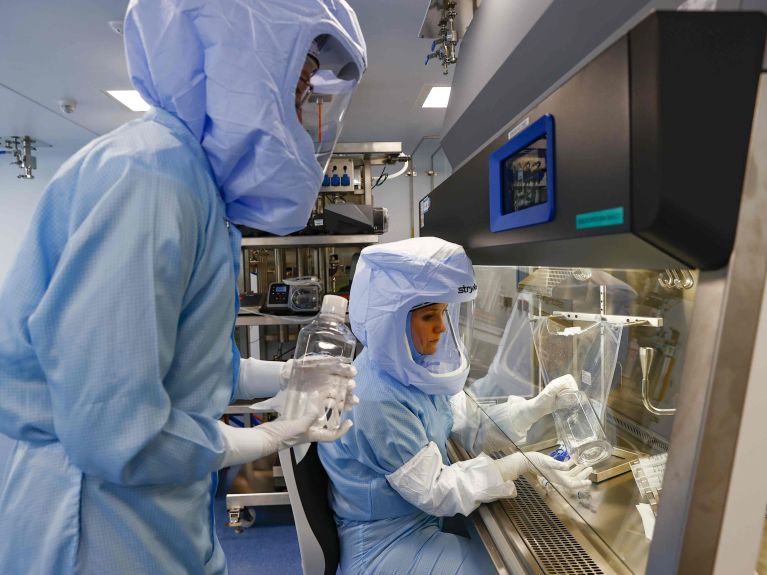
Vaccines against malaria, HIV and tuberculosis too
In Rwanda. the German firm is now beginning to deliver on its promise. BioNTech is investing 150 million euros in its first production facility on the African continent. Once completed, 100 highly skilled employees will work there. Production will no longer revolve around the coronavirus vaccine - instead, vaccines against other diseases will be the focus, some of which hit the African continent much harder than Europe: malaria, Mpox (or monkeypox), tuberculosis, HIV. All the vaccines are based on the mRNA technology made world famous by the coronavirus pandemic. Malaria, tuberculosis and HIV are widespread in Africa, causing more than two million deaths a year - many of them among children.
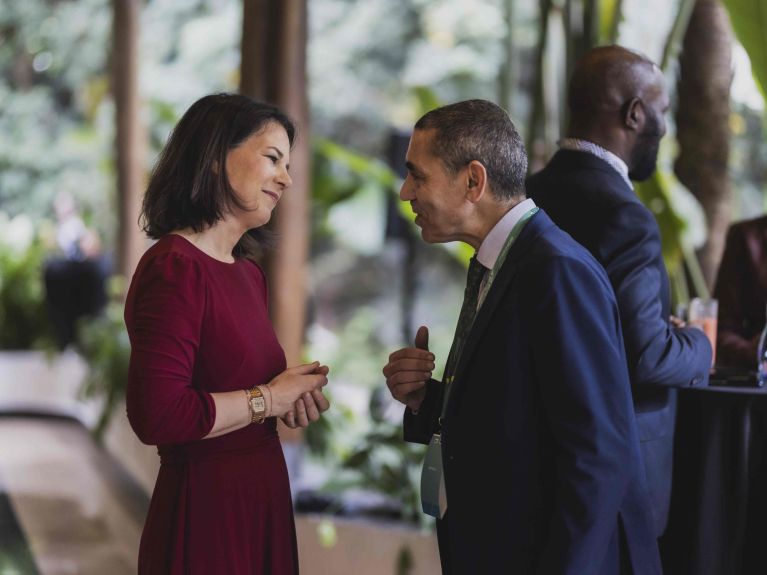
How the vaccines will be produced in Rwanda
BioNTech has developed a modular production approach to enable it to set up its “vaccine ecosystem”. The factory in Kigali will comprise two mobile production units that the firm dubs “BioNTainers”. Inside these containers is the hermetically sealed cleanroom - where the vaccine itself is actually produced. In local factories, the vaccine will then be filled into small glass bottles containing six doses each for use in doctors’ practices and vaccination stations. The first “BioNTainer” was already installed in the production facility in December 2023.
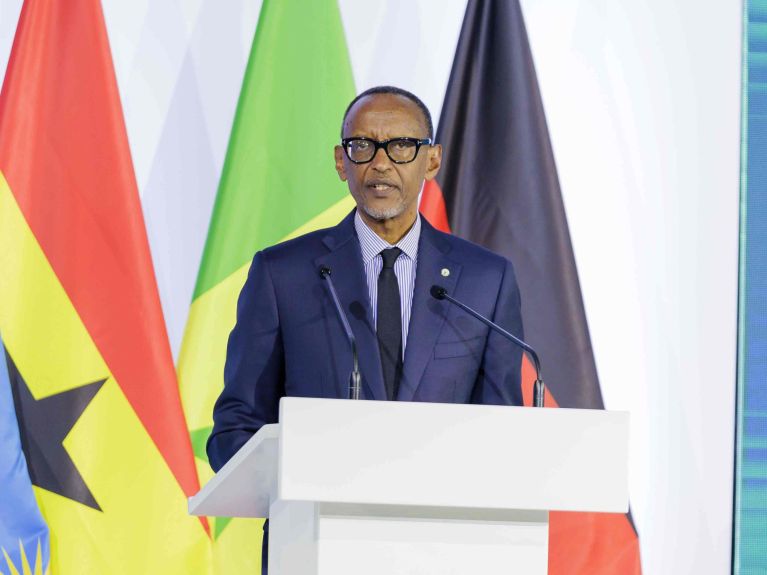
Additional factories in Africa
BioNTech plans to begin production in 2025. How much is produced will depend on the vaccine in question. It would be possible to produce 50 million doses per year of a product similar to the Pfizer-BioNTech Covid-19 vaccine, says Şahin. The facility in Kigali is both a milestone and a pilot project: as soon as it is successfully up and running, BioNTech intends to build additional factories in Africa, possibly even with bigger commercial capacities.
The complete “ecosystem” also involves conducting clinical studies on the African continent, emphasises Şahin. Clinical studies on potential tuberculosis and malaria vaccines are already underway in South Africa and the USA. BioNTech intends to begin clinical studies on potential vaccines against malaria, tuberculosis and HIV on the African continent before the end of 2024.
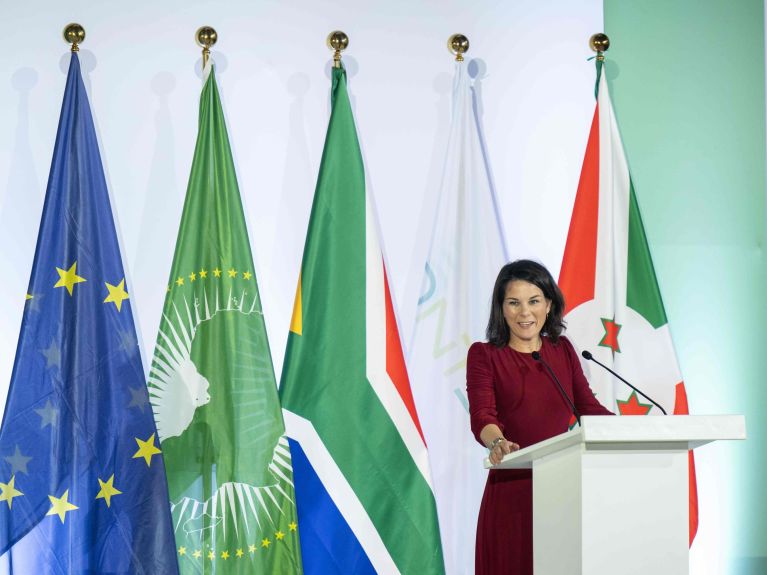
How Germany is supporting production
Germany is supporting the establishment of vaccine production in Rwanda by investing nearly 36 million euros in training the required skilled workers and in strengthening the competent regulatory authority. Additional money will be spent on building additional capacities in other African countries. In view of these developments, Rwanda’s President Paul Kagame spoke in December 2023 of an international “democratisation” of vaccine production.




